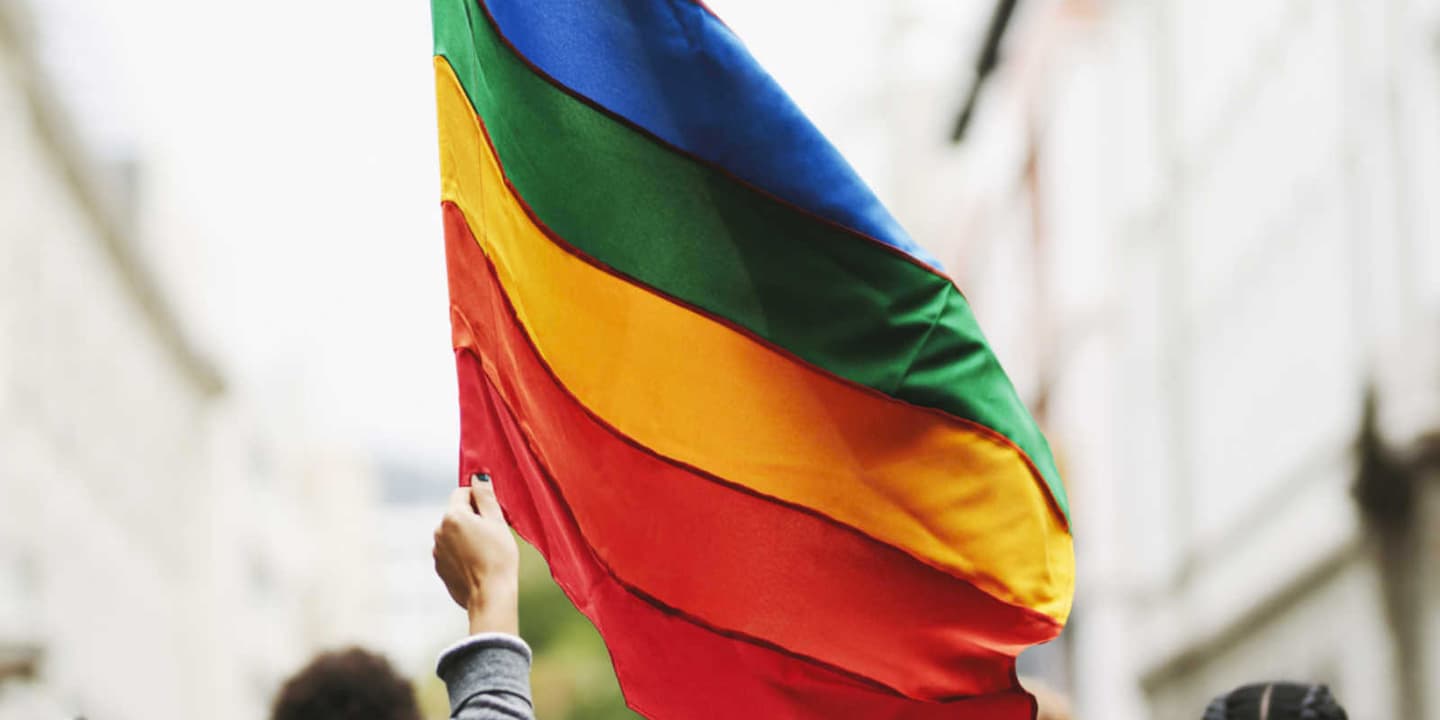The month of June marks Pride month, a time where the LGBTQ+ community commemorates the Stonewall Riots that took place in New York City in late June 1969, and recognizes the impact LGBTQ+ people have had on the world. At the same time, it signifies a call to action to continue the fight for the queer community's goals of diversity, inclusion, justice, and equity. This ongoing struggle demands the support of thoughtful, supportive allies to make progress.
Marginalized communities, like the queer community, need people who are genuinely committed to forming a long-term, life-long alliance to speak out against prejudice and discrimination, not self-congratulatory, shallow performances of allyship for one month out of the year. While straight, cisgender people may feel there is no immediate benefit to being an ally to the LGBTQ+ community, the truth is that we all reap the rewards of our collective efforts to create a more accepting, better-educated world that treats everyone with dignity, respect, and equality, regardless of race, color, religion, sex, sexual orientation, gender identity, national origin, or disability status.
To help allies who are looking to further their knowledge while also amplifying queer voices in the workplace, we asked the LGBTQ+ community within Propeller to share their thoughts on what they think people outside of their community can do to empower and support their LGBTQ+ colleagues.

CHRIS TUITE, PROPELLER ALUM (HE / him)
Listen more, talk less, and stand up when you know it’s the right thing to do! A cause is only as strong as its allies.

STEFANIE GALEN, PROPELLER ALUMNA (she / her)
An ally needs to be there for the entire LGBTQ+ community, not just one or some of us. We also need people to be allies in their day-to-day lives. That means calling people out when you hear someone being misgendered, called a slur, or any other ignorant remarks, and doing so everyday: not just when it’s convenient. It’s also important that allies educate themselves about the history of the community, in addition to understanding the issues the community still faces today, especially for trans women of color.

KP Peck, Propeller ALumna (she / her / they / them)
One of the more powerful ways for allies to support LGBTQ+ colleagues and clients is to refrain from making assumptions about their gender or sexual identities. Most of us know that queer people don’t always present as such, and we have become comfortable asking about their sexual orientation in contexts in which it is appropriate. However, we should be equally aware when it comes to gender identity. Otherwise, we can misstep in ways that unintentionally cause discomfort or even harm. For example, colleagues have given me clothing over the years, either as a corporate swag item or as an individual gift, assuming that I wear women’s styling. While I was grateful for these gestures, I didn’t wear the items because I prefer men’s styling. That is part of my gender identity. One way to avoid this issue would be to ask about recipients’ gender preferences before giving a gendered gift. This is consistent with the practice of asking people their pronouns when meeting them for the first time. These small acts can go a long way toward creating an inclusive workplace for folks of all sexual and gender identities.

AMY SWANSON, PROPELLER ALUMNA (she / her)
When I was growing up, being gay didn’t feel like it was an option, despite being my reality. All I wanted was to have a “normal” life, just like everyone else. My differences are no greater than other individuals; I’m a woman, a working mom, a veteran, a gen x-er, and a bunch of other things, who also happens to be gay. I don’t need anything special; I just want to be your friend, your colleague, and treated as your equal.

SARAH PIEPER, Propeller Alumna (she / her)
One aspect of being LGBTQ+ is that it’s often an invisible identity, so you don’t know if someone may be a part of that community unless they tell you. If you want to be recognized as a safe person to come out to, you may want to consider a visual signifier of allyship. Speak up if you hear any "jokes" or comments that are homophobic, transphobic, and so on. If there are no counter-responses to those offensive statements, the group will get the impression that the listeners are in agreement. By speaking up, you might not necessarily change the mind of the person who made the comment, but everyone else will know that the full group doesn’t agree. Treating us normally and respecting the information we give is also important. For example, my wife is my wife (not just my friend), and trans people need to be called by their correct pronouns. If for some reason you’re unsure about what’s correct, it’s totally fine to privately and respectfully ask what the correct information is.

JOY CASTIGLIONE, PROPELLER ALUMNA (she / her)
It's incredibly important to make sure you're being visible and consistent with your allyship. Be honest and enthusiastic about your support for the community, but do so because it's the right thing to do and not because you're expecting a pat on the back; if you're doing it for the recognition or "woke points," we'll pick up on that flimsy level of commitment pretty quickly and likely determine that you're not a person we can trust. Being a good ally means using your privilege as someone who exists outside of the LGBTQ+ community to improve our lives and wellbeing by helping us fight for rights and privileges that you may take for granted. We all want to live happy, healthy, and fulfilling lives, and your allyship can help us achieve that by putting in the work around doing research, learning our history, and amplifying our voices without talking over us.

JESSICA JOHN, PROPELLER ALUMNA (she / her)
Taking the initiative to introduce and orient employees and/or colleagues to affinity groups within the organization can help people feel more comfortable and included. If you have a welcome packet, for example, include details on the Slack channels, happy hours, monthly coffee chats, or other outreach activities that employees may want to connect into. More specific to the LGBTQ+ community is anticipating the concerns and challenges of LGBTQ+ employees and removing systemic barriers. For example, having non-gendered bathrooms, safe-walk programs, and using inclusive terms like “family / friends / partners” instead of “wives / husbands / spouses” on company party invitations are great places to start. Marginalized groups have a survival awareness that's almost like a sixth sense of who’s uncomfortable around them. Yes, your awkwardness shows, and it’s ok to make mistakes, but be willing to acknowledge and grow from it. We’re all learning and are each on our own awakening journey! Take time to check in with your own discomfort and your life experiences that might be contributing to it, and be open to re-educating yourself.

SUNIL KASTURI, CHIEF GROWTH OFFICER (he / him)
Being the most inclusive version of ourselves (especially leaders!) across the spaces we occupy physically and virtually, be they water cooler chitchats or board room meetings, is a great step to get things started. Staying away from assumptions, and more importantly, stereotypes about a colleague’s sexuality and how that’s expressed, promotes openness and connection. And finally, empower yourself with information on the LGBTQ+ professional experience and then engage your colleagues. A conversation with an ally built on a foundation of knowledge they’ve developed goes a long way to forging authentic partnerships! Happy Pride, everyone!



